Section 179 in a Nutshell
Section 179 in a Nutshell
The Section 179 Deduction is a $25,000 tax deduction that applies to both new and used business
equipment and off-the-shelf computer software that is purchased and put into service during 2015. Up
to this cap amount, it allows business owners to write off the full purchase price of such items during
the purchase year rather than depreciating their cost over a set number of years into the future. In
doing so, it encourages the purchase and write-off of more equipment during the current year. Because
the Section 179 Deduction comes with a $200,000 purchase ceiling, above which it is reduced on a dollar
for dollar basis, it is a tax incentive that is specifically targets small businesses.
Although the Section 179 Deduction covers the purchase of most equipment and software, there are a
few specific criteria that must be met. Some of these qualifying criteria are discussed below:
Property acquired by inheritance does not qualify for the Section 179 Deduction.
If property is acquired by cash plus a trade-in, only the portion acquired by cash can be
deducted.
The 179 Deduction is allowed for preowned property as long as that property is new to the
business acquiring it and it is acquired by purchase.
The 179 Deduction is allowed for computer software that is available to the general public and
governed by a nonexclusive license but is not allowed for databases or similar items that are
excluded form the public domain.
A maximum deduction of $11,060 is allowed for cars and $11,160 for trucks unless the vehicle
meets certain specific requirements that allow it to qualify for the full Section 179 Deduction.
No equipment or software is eligible for the Section 179 Deduction unless it is used for business
purposes a minimum of 50% of the time. As long as this basic requirement is met, the actual
amount of the deduction is found by multiplying the cost of the item by the percentage of time
it is used for business.
While the Section 179 Deduction represents a potentially valuable tax incentive for small businesses, it is
not always advantageous to elect first-year expensing over the alternative, which is to depreciate the
cost of the item over a set number of years. For example, first-year expensing should never be used if
the business has not been profitable during the tax year in question since expenses claimed in this way
cannot be used to create a net operating loss. In addition, it should not be used if the business projects
increased profitability in future years because the depreciation deduction claimed in the more profitable
years will be more valuable.
In summary, accountants and bookkeeping services providers alike must be fully informed of the tax
advantages offered by the Section 179 Deduction in order to pass the maximum tax benefits on to the
businesses they serve. Not only must they be aware of its specific requirements, but they must carefully
monitor changes to the tax law governing this deduction so that their clients can take advantage of any
changes that may occur as the year progresses.
If your business is seeking an outsourced bookkeeping solution, the experienced professionals at Orange
County Bookkeeping can provide you with the expertise you are looking for. Our licensed accountants
and bookkeepers are equipped to serve Orange County businesses of any size, structure or industry
focus. Visit us today at www.ocbookkeeping.com to learn more about our full range of bookkeeping, tax
and business consulting services. Contact us by phone at (949) 242-9852 at or by email at
info@ocbookkeeping.com to receive a free, no obligation consultation.



